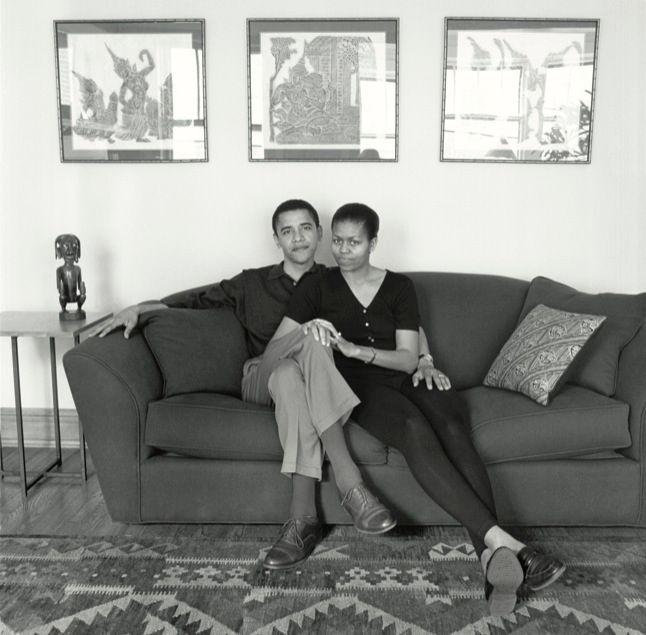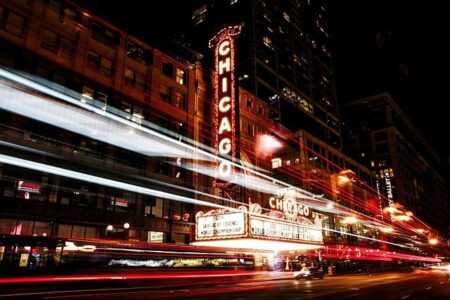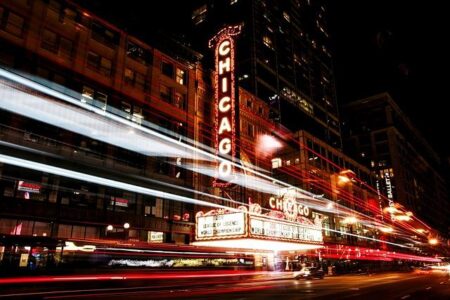Unpacking Chicago’s Political Influence on Civil Rights Advocacy
Former First Lady Michelle Obama recently provided a profound analysis of Chicago’s political environment and its meaningful role in shaping civil rights activism, notably through the fearless efforts of Mamie Till-Mobley. She described how the city’s political climate-characterized by entrenched segregation alongside emerging progressive movements-served as a complex yet fertile ground for Till-Mobley’s steadfast quest for justice after the tragic lynching of her son, Emmett Till. Far from being a mere backdrop, Chicago’s political dynamics acted as a powerful engine that fueled grassroots activism and drew national focus to racial violence and systemic inequality.
Obama identified several critical elements that defined Chicago’s influence on the civil rights movement:
- Interracial alliances: Chicago’s diverse communities formed coalitions that bridged racial divides to strengthen advocacy efforts.
- Media’s pivotal role: Local news outlets amplified civil rights stories, helping to broadcast injustices to a wider audience.
- Leadership from within: Politicians and community organizers used their influence to push for legislative and social reforms.
| Political Factor | Contribution to Civil Rights |
|---|---|
| Activist Networks | Forged solidarity extending beyond city limits |
| Municipal Governance | Shaped national civil rights policies |
| Press Coverage | Elevated public consciousness worldwide |
Chicago’s Mid-Century Politics and Mamie Till-Mobley’s Campaign for Justice
During the 1950s, Chicago’s political scene was a complex interplay of entrenched power structures, burgeoning activism, and community resilience that directly influenced Mamie Till-Mobley’s unwavering fight for justice after her son Emmett’s horrific murder. The city’s political machine, led by influential figures who both obstructed and supported civil rights progress, created a charged environment where grassroots movements could gain momentum.This tension was evident as local leaders balanced maintaining order with responding to growing demands for racial justice, culminating in Till-Mobley’s historic decision to hold an open-casket funeral-a bold act that captured national attention and exposed the brutal realities of racial violence.
Key Political Forces in Chicago Impacting Till-Mobley’s Advocacy:
- Supportive Civil Rights Politicians: Certain city officials championed civil rights causes, providing crucial platforms and protection for demonstrations sparked by Till’s case.
- Media Partnerships: Collaboration between political leaders and Chicago’s press ensured ongoing coverage that kept racial violence in the public eye.
- Community Organizing: Political figures helped foster interracial coalitions that pressured state and federal governments to pursue justice reforms.
| Political Figure or Entity | Function | Effect on Justice Efforts |
|---|---|---|
| Mayor Richard J. Daley | Maintained city governance and order | Balanced civil rights demands with political stability |
| Aaron Patterson | Civil rights advocate and political leader | Elevated calls for justice and systemic reform |
| Chicago Tribune | Major media institution | Brought Emmett Till’s story to national prominence |
Michelle Obama’s Perspective on Community Empowerment for Social Justice
Michelle Obama stresses the indispensable role of grassroots activism and sustained community involvement in driving social justice movements, particularly within Chicago’s ancient context. Reflecting on the political environment that bolstered Mamie Till-Mobley’s brave quest for justice, Obama highlights how dedicated local networks and influential leaders mobilized public sentiment and amplified marginalized voices. Her reflections emphasize that meaningful social transformation is deeply rooted in local efforts, where trust within communities and collaborative action form the foundation for enduring progress.
She outlines several effective approaches to galvanizing community support, including:
- Forming inclusive coalitions: Bringing together diverse groups to build a united front.
- Utilizing storytelling: Sharing personal experiences to humanize and contextualize broader social issues.
- Engaging younger generations: Empowering youth to sustain and evolve the movement.
- Consistent advocacy: Applying ongoing pressure on institutions to ensure accountability and reform.
| Approach | Outcome |
|---|---|
| Coalition Building | Expanded support base and resource sharing |
| Storytelling | Enhanced empathy and public understanding |
| Youth Engagement | Ensured movement longevity and innovation |
| Persistent Advocacy | Achieved policy reforms and institutional accountability |
Lessons for Modern Leaders Drawn from Chicago’s Civil Rights Legacy
Chicago’s influential role in the civil rights era offers timeless guidance for today’s leaders striving to enact meaningful social change. The city’s history demonstrates how grassroots mobilization combined with strategic political alliances can overcome systemic barriers and foster lasting impact. Leaders today can learn from how Chicago’s political environment nurtured resilient advocates like Mamie Till-Mobley, whose fearless pursuit of justice challenged national indifference and sparked a transformative chapter in American history.
From this rich legacy, several actionable strategies emerge:
- Fostering diverse coalitions that cross racial, economic, and political boundaries to amplify collective power
- Leveraging media-both traditional and digital-to shape public narratives and expose injustices
- Engaging local political institutions to build momentum for systemic reforms
- Centering the voices of historically marginalized communities to ensure inclusive progress
| Strategy | Chicago Example | Contemporary Application |
|---|---|---|
| Coalition Building | Multiracial alliances during protests | Inclusive policymaking and advocacy networks |
| Media Engagement | Press coverage of peaceful demonstrations | Social media campaigns to raise awareness |
| Local Political Involvement | Neighborhood organizing influencing city policies | Community participation in legislative processes |
Conclusion: Reflecting on Chicago’s Enduring Civil Rights Legacy
Michelle Obama’s reflections on Chicago’s multifaceted political environment highlight the profound influence of local activism in shaping the broader national struggle for justice.Mamie Till-Mobley’s fearless pursuit of accountability remains a testament to how determined individuals, supported by their communities, can confront and dismantle systemic oppression. This dialog not only honors the courageous past but also inspires ongoing commitment to vigilance and action in the continuing fight for civil rights and social equity.





